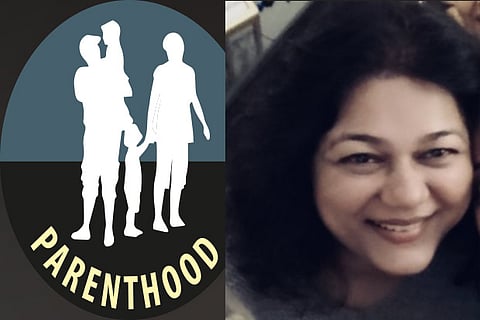

Chennai
She brought up diversity and differences every day. She made it a point to keenly observe and speak out about the differences in our group, religious faith, beliefs, language, practices, gender identification, economic, physical attributes, etc. While all of us were aware of it, we assumed it was fine to NOT talk about it. Ruth challenged us about our beliefs of the same, saying that when differences are brought out there are more understanding and fewer assumptions about one another.
As we finished the fortnight of training, the interesting part was how each of us not only celebrated our unique differences but also honoured them! In today’s world, all of us interact with, work with, so many people who are unlike us in so many ways. It has become vital to cultivate our awareness and tolerance in order to coexist. Most importantly, we see that, building understanding and compassion towards each other is the key to a more peaceful society. So then, what does this mean for us as parents? How do our attitudes towards people who are different from us affect the way our children interact with their peers who are not similar to them?
Looking at our own biases and beliefs:
Our reservations towards people who are different from us maybe because of biases we have due to deep-set beliefs and conditioning. These beliefs influence our thoughts and our behaviour, and invariably our children pick up the same from us. Challenging our beliefs, and ultimately changing our behaviour takes a lot of work, but it is essential, especially if we want our children to learn and adapt positively to the diversity that is all around us.
How we talk about it:
The manner in which we address differences plays a critical part in building our children’s belief system. A simple example could be our choices regarding food, we may be vegetarian , or eat only certain meat because of our faith, etc. When guiding our children, it works to simply say and highlight that, “in our family, we don’t eat and many others do and that’s okay for them”, versus speaking in a derogatory manner about other’s values that may be contrary to ours. Bringing out the difference without judgement will affect the way our child perceives another child who eats different than him. He might be curious, or even inquisitive, but he will definitely not have negative prejudices or be a bully!
Mediums that can bring up this topic:
We can use books, advertisements and movies as an opportunity to talk about diversity and differences, have discussions and raise questions about it. For example, we can use fairness cream advertisements to explore societal beliefs about skin colour. The discussion can then go on to different races and regions with differences in skin tone, and the fact that all skin colours are beautiful. Our children need to hear that from us. It’s never often enough. This will help raise our daughters to be confident in their own skin and in the long run build a more inclusive society.
Being open when children are curious:
Children speak up their minds, and in their innocent manner, may point out differences and ask us openly about people. It could be about the practise of removing shoes outside the house, or a person walking with a limp, or a manner of dressing, etc. When we have time alone with them, we can encourage that curiosity by exploring what they noticed, what’s different, what made them notice it and then talk about it. The really interesting part about this conversation, we will begin to discover, is how much we open ourselves and our minds along with our children. Things we may not have observed come to light which makes us sensitive to others.
Using respectful language:
When we start talking about differences in a manner that highlights what makes each of us unique, we will notice a shift in language from judgement to understanding. Although it might not be overtly obvious, there is a lot of difference in saying “he has autism”, which talks about just one part of a person’s whole being, versus “he is autistic” which ends up defining the person overall. Frank curiosity and open conversations about people bring out both the differences and similarities between us. That helps us to understand each other and dispels blind assumptions we might have of other races, religions, physical and economic strengths, sexual orientation, family structure, etc.
Living in a cosmopolitan city, I learn from my children every day, when they share details about their friends describing their talents, food preferences, the fun moments they have in school and college and only after all this, I may get their place of origin! They are teaching me about the glorious richness of diversity and underlying similarity.
— Mrinalini Ponappa Banerjea is a certified Parent Educator with Parenting Matters, an organization that promotes parents to build deeper connection within families. To know more about our programs and workshops, look us up onwww.parentingmatter.in
Visit news.dtnext.in to explore our interactive epaper!
Download the DT Next app for more exciting features!
Click here for iOS
Click here for Android